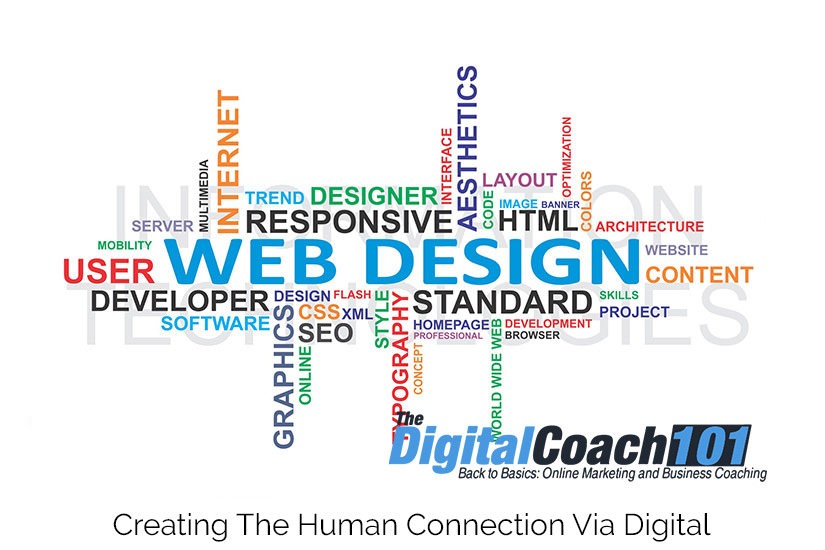How Quality Content Drives Traffic To Your Website
Unless you’ve been living under a rock for the last 20 years or so, you’ll know that if you have a business, you need a website. Or at least, you should know that! You will no doubt have read that your website is your online brochure. That most people do online research first before making an offline purchase. And that if people can’t find your business on the web, they won’t find you at all.
So you listened, and took heed. You did your research and set out to get yourself a website with all the bells and whistles. Plus a few other cool gadgets simply for good measure. You found a web designer who was a total ninja. He built you a site that is so amazing it does pretty much everything except make the coffee. And it could probably even do that if you asked it nicely enough.
True, you had to sell one kidney and take out a mortgage against the other to afford this website, but surely it was worth it? Surely you should now be inundated with visitors, all of whom spend ages on your site and then buy tons of stuff from you? After all, you indulged your Kevin Costner moment from Field of Dreams – “If you build it, they will come.”
You built your website, so where the heck are all your visitors?
Websites Need Work
Many people labour under the misconception that building a website is like building a house. When it’s done, it’s done. All you now have to do is live in it and enjoy the fruits of your labours. Sadly, this is not the case. A website doesn’t work like a house. Well, unless it’s one of those houses that constantly needs renovations and improvements.
A website – one that does its job properly, anyway – is more like a high performance car. You constantly have to put fuel in it, service it, and wash, polish and wax it. It needs regular attention or one day you’re going to jump in, turn the key and be met with nothing more than a sulky “click” instead of the satisfying roar of an engine leaping into life.
So what do you need to do to make sure your website doesn’t stop working? That it doesn’t decide to punish you for neglecting it by not bringing in a single new customer or generating even one new lead?
You need to feed it. And by feed it, we mean, give it content. Websites are unashamed content addicts. They even go to meetings and have support groups, but nothing helps. They need content to stay alive. There’s simply no escaping the reality of the situation. Without the addition of regular content, websites take themselves off to dark and lonely corners of the Web, and die. And when your website dies, so do all your dreams and aspirations for your business.
So start your website on a content-rich diet today!
What Is Quality Content?
Good question. If you’re going to be feeding great chunks of it to your website, it’s a good idea to know what it actually is. Having said that, however, content as such is actually pretty difficult to define neatly and tidily. It means different things to different people, and you will probably have a different idea to me about what it really is.
At its most basic level, however, content is information. It might wear different hats and get called social media posts, white papers, ebooks or blogs, among others. But essentially, when you take off all its posh clothes, it’s all just information. Not just any information, of course. Good content is useful, interesting and relevant. It’s also easily sharable.
Quality content is the blood that flows through your website’s veins. It’s the magnet that draws people in, and the glue that makes your site sticky, stopping them from leaving. It should be at the very heart of all your marketing efforts.
How Does Content Drive Traffic To Your Website?
Having content that is interesting, relevant, authoritative and, perhaps most importantly, regularly updated, is crucial to your website for several reasons. Some of the most important of these are that it:
- Helps your customers make purchasing decisions.
- Establishes your company as an expert in its field.
- Increases the chances of visitors returning to your site.
- Increases the likelihood of other websites linking to yours.
All of these help improve your rankings, which, in turn, drives more traffic to your site. But how do they do this? What is it about content that makes your website like catnip for customers?
Content And Search Engine Optimisation (SEO)
Search engines exist for one main reason – to find, index and rank content. If you regularly produce fresh, quality content for your website, search engines will love you for it. They will devour it hungrily and say thank by giving you higher rankings. Your site’s ranking is how high up it appears on search results pages. Any lower than 5th place, and you can pretty much guarantee you lose out big time in the big old Vying for Visitors competition.
Google in particular loves fresh, high value content. It indexes it quickly and registers it higher on its results pages than older content with a lower value. Good SEO practice means putting out great content consistently and continually.
Content marketing wunderkind, Neil Patel, has this to say about the importance of content:
“There is no such thing as SEO without content. You need words, articles, substance, keywords, verbiage. I wince whenever I have to say it, because it’s so cliched, but it’s true: Content is king.”
There’s no real magic formula for how often you should add new content. However, over time, most businesses see significant improvements in the amount of traffic their website receives simply by adding a few new pages of quality content every month.
Some of the content you can think about adding includes new category pages, visuals, videos, infographics, or blogs. All these will help your website boost its rankings and attract new browsers.
Blogging in particular is a fantastic way to add new content to your site. In fact, blog articles pretty much pioneered content marketing. They’re a great way to add interesting content to your site for free, and when you freely share content, you build trust.
Keywords
Every time you add a new page of content to your site, you give it a new and shiny opportunity to target and rank for a new keyword or keywords. The more keywords you rank for, the more ways there are for people to find you. Pages won’t just rank for single word keywords – content rich pages also rank for long tail keywords as well.
Backlinks
Every new webpage is another opportunity for another website to use the information you provide by referencing you (backlinking) in an article. In addition, if your content is relevant and useful, people will share it on social media. These links and social shares boost the overall authority of your site, increasing trust and improving rankings for all the keywords you’re targeting
Establish Expertise
With the pages of an average-length website, it’s hard to include enough content to effectively establish yourself as an authority in your particular area. People also tend to view websites with more pages as more trustworthy and authoritative as smaller sites. The more relevant and useful information you provide for free, the more people will trust you. People who trust you are more likely to buy from you.
Increase Time Spent On Site
If you only have a four page website, with no additional content other than the mandatory Services, About Us and Home pages, people aren’t going to spend very long visiting you. The more pages of content you have, the longer visitors are likely to spend on your site. This is one of the factors that search engines use in their ranking algorithms.
Encourage Visitors To Return
Say someone comes onto your site and reads everything you have to say. They quite like what they read, so a couple of weeks later they come back to your site. Only to see that the content is exactly the same as it was the first time. Not a single thing added. So why then, would they come back a third time? The assumption is that the first time was a good as it was going to get. If they see, however, that you’re adding new content every week, they’ll keep coming back to see what you have to say next. Provided, of course, that it’s interesting, useful content.
When it comes to driving more traffic to your site, all roads lead to content. It’s summed up perfectly in this blog from Kissmetric: “Why is it important to have a good sitemap? So people can easily find and access your content. Why do you want an optimised robots.txt? So search engines can crawl your site more easily, and so readers can see the content. Why do you want the right tags in the right places? So your content can get stellar indexing, accurate search results, and more readers of your content. It all comes back to content.”
If you’re not content with your content, chat to the Digital Coach. We know how to make you awesome.




